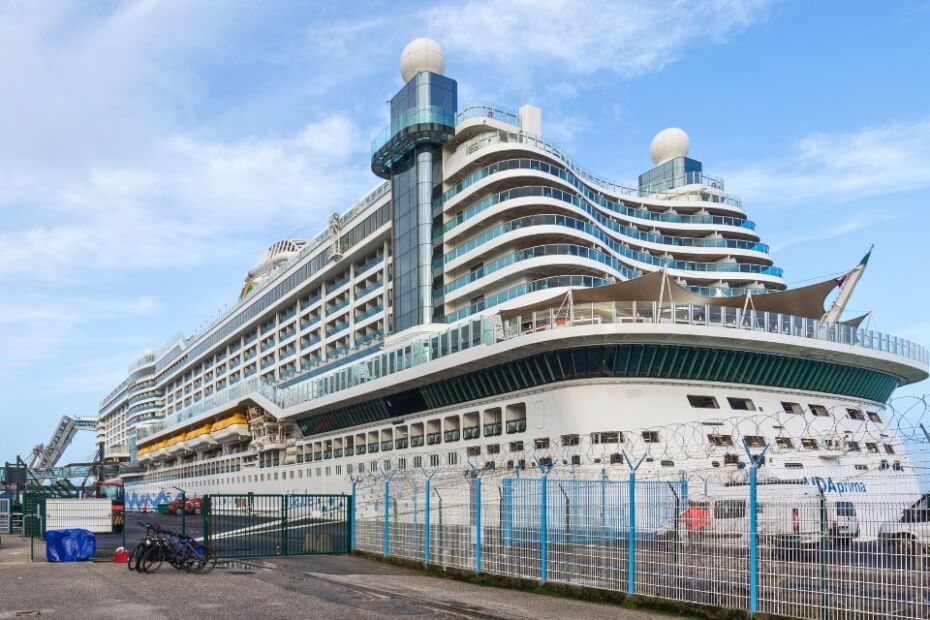
Normany Port Director warns of potential delays as the European Union (EU) launches its new Entry/Exit System (EES) in November 2024.
The new system aims to improve security and track the movement of non-EU travelers entering and exiting the Schengen Zone.
It will require short-stay visa holders and non-visa travelers to submit biometric data, including fingerprints and facial scans.
However, limited testing time and equipment and staff readiness concerns led to anticipated lengthy delays at border crossings.
These travel disruptions are expected to worsen at major entry points, particularly ports in France and the UK.
Expected delays at French ports
The EES will replace the traditional passport stamping process at border crossings with a more modern, secure system.
Although the EES promises to strengthen the EU’s border security, several officials have raised concerns about its potential impact on wait times.
Jérôme Chauvet, Director of Ports de Normandie, has expressed concern about the EES delays in an interview with The Connexion.
Ports de Normandie oversees the French ports of Cherbourg, Caen-Ouistreham, and Dieppe.
These ports are used by cross-Channel services by Brittany Ferries, DFDS, Irish Ferries, and Stena Line for Ireland.
He warned that the EES will not only impact crossings to the UK but also non-EU visitors on Ireland-France trips.
Limited testing time for EES

The Ministry of the Interior delayed any testing at ports in France due to the Paris 2024 Olympics and Paralympics.
The global sporting events have stretched French government resources and attention away from EES preparations.
As a result, Normandy ports like Cherbourg and Ouistreham have not been able to run trial operations to ensure the system will work efficiently.
“There has not been a test at any port, so we do not yet know the equipment well and how it is going to work,” Chauvet admitted.
He added that this lack of testing and preparation could lead to significant delays at border crossings.
It is expected to cause long lines, particularly at busy ports like Cherbourg, Caen-Ouistreham, and Dieppe.
He added that the technology used for collecting fingerprint and facial scans is still unfamiliar to port staff.
“We do not have much knowledge of the kiosk interfaces. We are going to discover all as it gets underway,” Chauvet explained.
This has made many officials uncertain about the efficiency of the EES once it goes live.
Lack of readiness and staffing issues
The French government has provided ports with the necessary EES equipment, such as tablets and kiosks for biometric registration.
However, Chauvet pointed out that hiring staff to operate this technology has been challenging.
Ports like Dieppe and Caen-Ouistreham rely on a limited number of ferry stops per day.
This makes it difficult and potentially costly to recruit staff who can work the irregular hours required.
The staff these ports would hire will also need to speak English and handle the complex tasks of registering travelers.
Chauvet added that building covered spaces for ferry passengers to register biometric data has been the most expensive.
Another investment is putting up signages to direct people according to whether they are EU citizens or non-EU citizens.
With the substantial costs, some ports are considering passing the expenses onto ferry companies, risking increased ticket prices.
UK shares concerns over delays, limited testing time
Concerns about delays and limited testing time for the EES extend beyond France.
In the UK, Kent officials have voiced worries about how the system could impact the Port of Dover.
The Port of Dover, one of the busiest ferry ports connecting the UK to the EU, is already dealing with congestion due to post-Brexit checks.
Dover is expected to face even more delays when the EES is introduced, as it will also have limited testing time for EES.
Kent officials have warned that delays could reach up to 14 hours if the system faces issues.
Even the slightest delay per passenger could add up and cause a huge traffic build-up and gridlock in Kent.
Travel agencies, including Visit Kent, have raised concerns about the anticipated delay’s impact on tourism and local businesses.
What travelers can expect

Ports de Normandie, similar to the Port of Dover, will mainly use tablets to process passengers in vehicles rather than travelers on foot.
Travelers on foot will be shuttled to the ferry terminal, where they can pre-register at kiosks before going through immigration controls.
Those in cars will be pre-registered while they are in the queue waiting to cross the border.
EES procedures for coach passengers will depend on the port.
Caen-Ouistreham will have a designated space for passengers. In Dieppe, coach passengers must alight and use kiosks at the ferry terminals.
The Port of Dover’s private vehicles’ passengers will use tablets, while coaches will use special lanes equipped with EES kiosks.
Other UK-EU cross-country services, such as Eurostar and the Channel Tunnel, have also invested in EES kiosks and added infrastructure.
Given the potential delays, officials advise travelers to arrive at ports and border crossings earlier than usual.
This is to account for the extra time needed to register and process fingerprint and facial scans.
Travel experts anticipate delays after initial registration due to possible EES malfunctions, as the system remains relatively untested.
Despite the concerns, the EU is moving ahead with the EES rollout, improving border security and reducing illegal immigration.
However, as Chauvet and other officials have pointed out, the system’s true impact will only become clear once it is fully operational.

